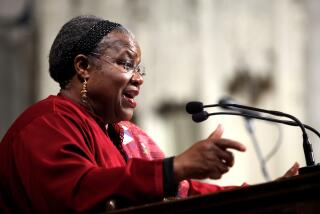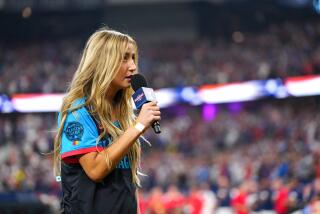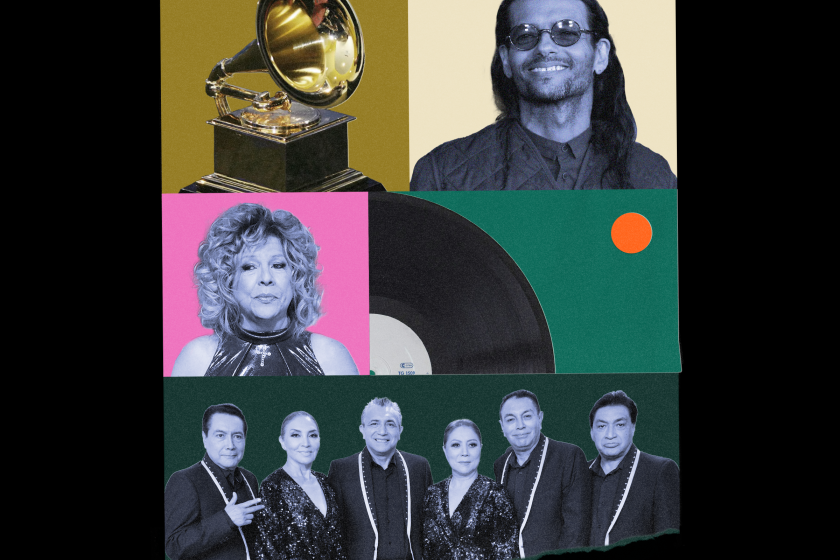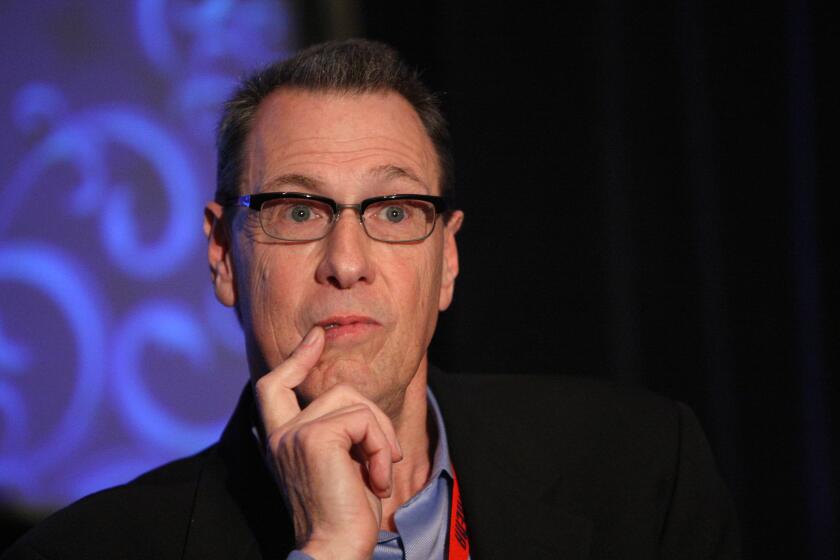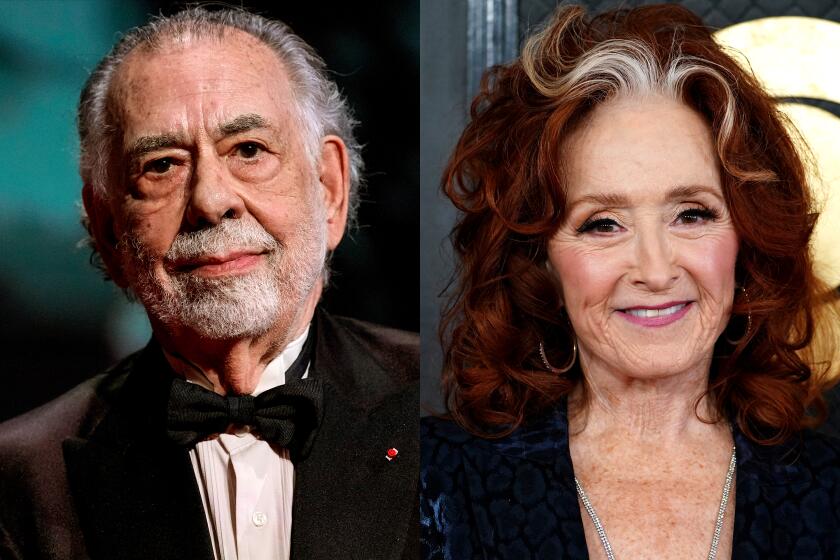Taking a Risk to Make a Statement
The hot seat’s never been hotter for public figures using racial or cultural epithets--as Mark Fuhrman, Michael Jackson and Marlon Brando have learned.
Yet, singer-songwriter Me’Shell NdegeOcello is willingly taking that seat. Not only has she included a song on her new album that makes prominent use of a derogatory term for homosexuals in both the lyrics and title but she also plans to release it to radio as a single on Tuesday.
Despite the epithet, key radio programmers in several major markets--including KKBT-FM (92.9) in Los Angeles--have already said they’re willing to play the song, “Leviticus: Faggot.”
NdegeOcello, who says she is a lesbian, defends the use of the term as essential to the song’s examination of gay-bashing and intolerance.
A funky ballad in the tradition of Marvin Gaye and Curtis Mayfield, the cut--which will be on the singer’s second Maverick Records album, “Peace and Passion,” due in stores June 25--describes a gay man being taunted and beaten by homophobes.
Meanwhile, his mother, “hoping he will change” his sexual orientation, prays to “save him from this life.”
“Hey, faggot, better run,” the song begins. The second verse starts, “Go to church, boy, you’re just a prisoner of your own faggot world.”
“I want people to question the attitude of the mother, and I just wanted the song to be human and deal with the issue in a human perspective,” says NdegeOcello, 27, whose critically acclaimed 1993 debut, “Plantation Lullabies,” earned her a Grammy nomination and included the hit singles “I’m Diggin’ You (Like an Old Soul Record)” and “If That’s Your Boyfriend (He Wasn’t Last Night).”
Jackson’s claim that he was trying to expose intolerance in his 1995 song “They Don’t Care About Us,” which used a derogatory term for Jews, failed to quell objections, and he reissued the song with the offending language made unintelligible electronically. The use of “faggot” in Dire Strait’s 1985 hit “Money for Nothing” and Guns N’ Roses’ 1988 song “One in a Million” drew intense fire from gay activists.
But the clear pro-tolerance message of NdegeOcello’s song, as well as her homosexuality, are leading gay many men and lesbians to support her song.
“I haven’t heard the song, but from what it sounds like, I hope radio stations will play it,” says Tamra King, entertainment media director for the Washington-based Gay & Lesbian Alliance Against Defamation. “It’s a song that sheds light on the situation gay men face; they are the most targeted people in Los Angeles for hate violence now, according to the Police Department.”
But will everyone listening to the radio get the message?
That was the big question on the mind of Freddy DeMann, the co-CEO of Maverick Records, when he took the single and several other songs from “Peace and Passion” to play for select radio programmers around the country last month. The first reactions were exactly what he feared.
DeMann recalls that when he first mentioned the title of the song to Michelle Santosuosso, program director of San Francisco’s KMEL-FM, her response was, “Are you crazy? This is San Francisco!”
Says Santosuosso: “I said there was no way we can play it given the large presence of the gay community here. But Freddy said, ‘Listen to the words.’ And then we said, ‘Wow. We have to play this.’ ”
Santosuosso hopes to head off any uproar by bringing in local gay activists to discuss the song’s message on the air before playing the song for the first time.
Harold Austin, program director of L.A.’s urban-oriented KKBT-FM, also says he plans to air the song but knows that some listeners won’t wait to hear the story before reacting.
“It’s a word that, regardless of what context is being used, someone is going to feel offended by,” he says. “But at the end of the day, it’s a great song, so I’ll play it.”
Mike Morrison, program director of L.A. adult-alternative station KSCA-FM (101.9), though, has not made up his mind whether to play the song. He’s concerned that some listeners will not get the message.
“It’s a difficult track to decide on,” he says. “Many people listen very passively, and the first reaction could be that it’s an anti-gay song. . . . It would be easy to back away from it, though. And if it turns out that the song turns the world upside-down, it would be nice to say that we stepped out early and did something.”
After radio tests out the track, the next step will be submitting a video, now being readied, to MTV and VH1. Linda Alexander, spokeswoman for the cable channels, says that no decision will be made about the clip until the channels’ executives see it.
“Historically we prohibit derogatory terms of any kind,” she says. “But though that word is derogatory, in the context of the song or video it may be incredibly powerful in a positive way. But we can’t comment on anything we haven’t seen.”
The possibility of releasing an altered version of the song with the term replaced by the character’s name has been considered, but NdegeOcello is against it.
“It’s important that at first the character doesn’t have a name, he’s just a faggot to them, because so many people outside of the norm are seen as nameless, just a label,” she says.
GLAAD spokeswoman King acknowledges the danger of making the term seem acceptable. Already, she says, the word is allowed to pass where other epithets are not. But she believes that the potential pro-tolerance impact of the song outweighs that fear.
“We’re the last group where it’s OK to say, ‘Beat them up,’ ” she says. “And NdegeOcello is trying to shed light on that.”
More to Read
The biggest entertainment stories
Get our big stories about Hollywood, film, television, music, arts, culture and more right in your inbox as soon as they publish.
You may occasionally receive promotional content from the Los Angeles Times.
